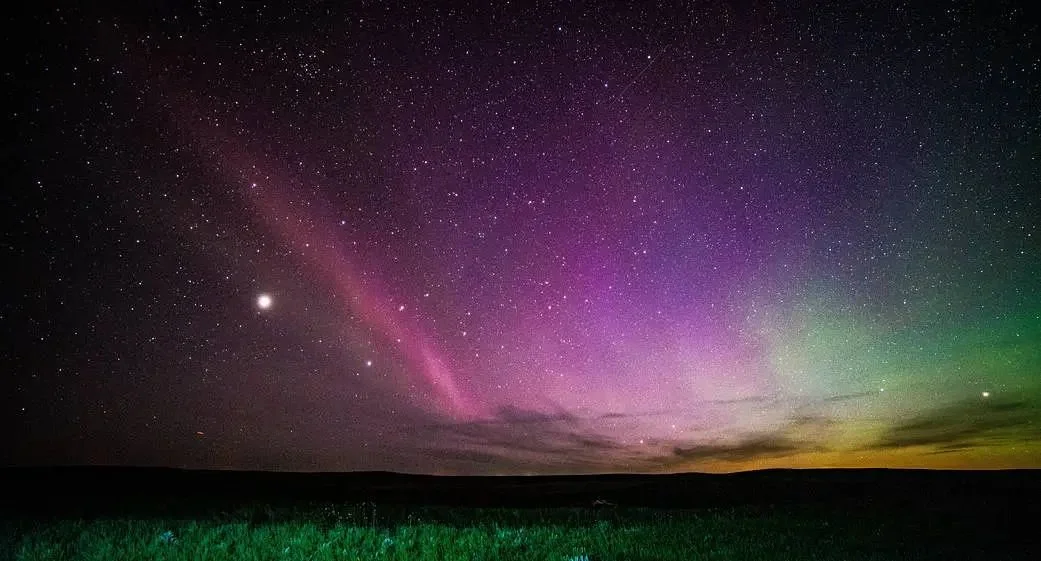The image above is of the aurora named STEVE, Strong Thermal Emission Velocity Enhancement. Credits: NASA/Megan Hoffman
REGISTRATION REQUIRED FOR THIS FREE VIRTUAL EVENT:
Hamptons Observatory (HO), a 501(c)(3) NYS nonprofit that relies on public support has served the South Fork since 2005. Hamptons Observatory offers all of its programs free-of-charge so that everyone can enjoy the wonders of their Universe. Please consider making a tax-deductible donation to help support our work. Thanks!
Virtual Astronomy Lecture:
“Understanding Auroras” (A Free, Virtual Lecture)
SPEAKER: Dr. Elizabeth MacDonald, NASA Space Physicist
CO-HOST: Aurorasaurus
THIS EVENT IS SOLD OUT. TO JOIN THE WAIT LIST, PLEASE GO TO:
https://www.zeffy.com/ticketing/understanding-auroras-wait-list
Registration is required: https://bit.ly/AuroraTalk
What are the Northern Lights and how do you know when is the best time to see them? How can you make contributions to NASA science? You will be introduced to the beautiful basics of the physics that cause the aurora borealis, how you can participate, and how scientists are using both satellite data and information from the public to figure out where and when they are best seen. During this talk, we’ll discuss this new technology, as well as learn about the Sun, magnetic fields, and glitter by putting the Northern Lights in the spotlight. From this real-life example, we can see how everyone can contribute, and how new discoveries can be made in the process.
Dr. Elizabeth MacDonald works for NASA’s Goddard Space Flight Center remotely from her hometown of Walla Walla, Washington. She leads a global citizen science project called Aurorasaurus which uses citizen science and social media to predict the Northern and Southern Lights. In 2018, Dr. MacDonald announced the discovery of a new aurora called STEVE (Strong Thermal Emission Velocity Enhancement). She has been studying the glitter of the Northern Lights for 25 years, and it never ceases to amaze her. She has also led teams that build instruments to measure charged particles in the space environment for NASA and DOE satellite and rocket missions. Outside of work, she enjoys skiing and hiking in the Pacific Northwest.
Hamptons Observatory thanks Aurorasaurus for its kind collaboration, and Dr. MacDonald for so kindly sharing her expertise.
While this lecture is free, donations to support our programs are needed and deeply appreciated regardless of the amount. To make a tax-deductible donation to support our mission, please click HERE. Thanks!
REGISTRATION IS REQUIRED FOR THIS FREE, VIRTUAL EVENT: https://bit.ly/AuroraTalk
Contact us for further info, questions, or to join our mailing list.

